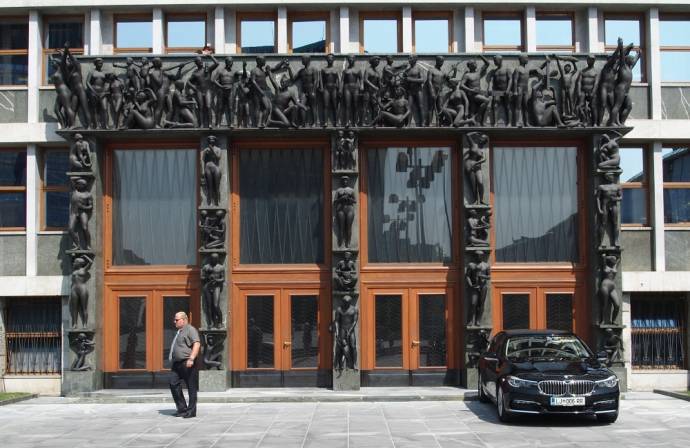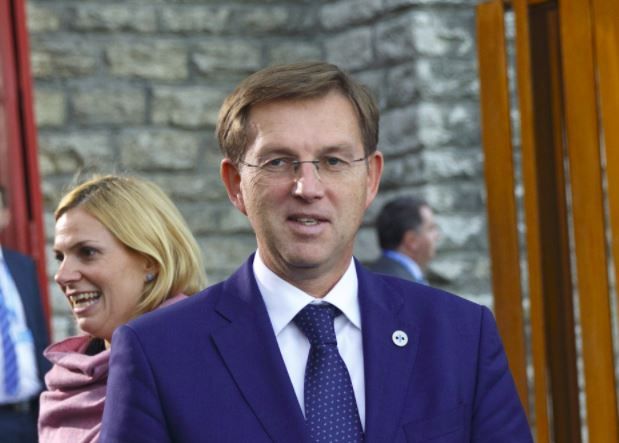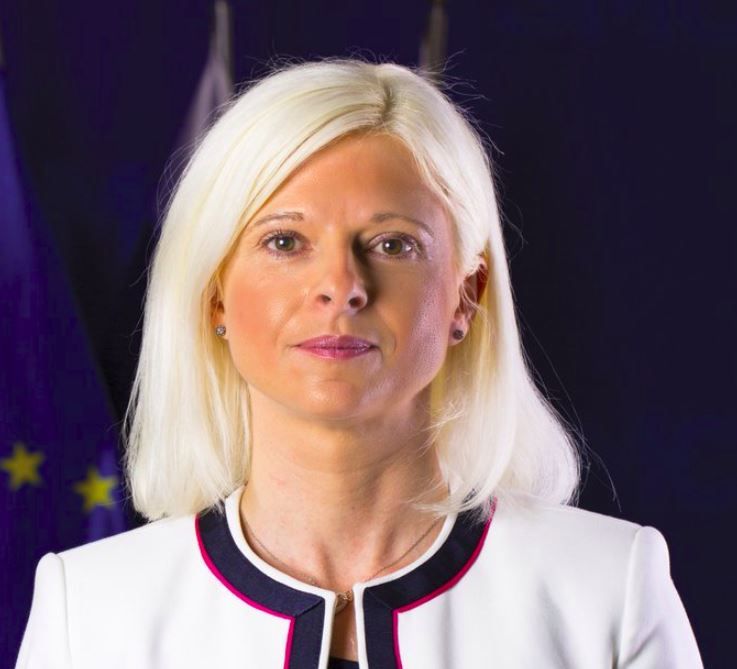STA August 30, 3018 – PM-designate Marjan Šarec has filed a list of his ministerial candidates to parliament, the Marjan Šarec List (LMŠ) told the STA on Thursday. He proposes 16 candidates of the LMŠ, SocDems, the Alenka Bratušek Party (SAB), Modern Centre Party (SMC) and the Pensioners' Party (DeSUS) to form the 13th Slovenian government.
He filed the list a few days before the deadline, which is on Monday.
The line-up for the 13th Slovenian government includes two former prime ministers, four outgoing or former ministers and three former state secretaries.
Together with the prime minister, a former mayor of Kamnik, there will be two former mayors in the cabinet alongside four legal experts. Two out of the 16 ministers will be ministers without portfolio.
Only four candidates are women. The most candidates, seven, are aged between 40 and 50, four of them are 60 or older and one is over 70. Only one candidate is under 40.
All leaders of the five coalition parties except for SD head Židan, who was appointed speaker, will be in the cabinet if the list is endorsed by MPs.
Short biographies of each of the 16 candidates are presented below
Miro Cerar. Wikimedia - Raul Mee (EU2017EE), Creative Commons Attribution 2.0 Generic
Miro Cerar, nominee for foreign minister (SMC)
A 55-year-old constitutional jurist, Miro Cerar has so far served as prime minister. He precipitated the 3 June general election by stepping down in mid-March, shortly before the end of the term of his centre-left government.
This was after the Supreme Court annulled the 2017 referendum on the Koper-Divača rail track, a major project of his government, while Cerar also cited conflicts with coalition partners, trade unions and other interest groups.
Many saw his resignation as a strategic step aimed at lifting his party's poor public opinion ratings, but the Modern Centre Party (SMC) won only ten seats in the current National Assembly, a far cry from the 36 secured in 2014.
A respected jurist, Cerar established the party a good month before sweeping the 2014 early election with the promise of bringing ethics into politics, something that most pundits believe he failed badly to deliver on.
As prime minister he grappled with antagonism not only from the opposition but also from the ranks of the coalition, as well as infighting in his own party.
He had a major row with party vice-president and former Speaker Milan Brglez over how the government should handle the migration crisis, a rivalry that came to a head after the June election when Brglez was expelled from the party after offering himself for the speaker, a post that Cerar wanted for himself.
Cerar was forced to climb down from his statements on several occasions, including when he promised a solution for a Syrian refugee facing deportation, which earned him a failed impeachment motion from the opposition.
His government stuck to restrictive fiscal policy, trimming down the general government deficit and public debt, and the state of economy improved greatly since the last crisis. But his critics say that Cerar took the credit for the efforts of previous governments and did too little by way of structural reform.
Cerar first entered politics in 2014, although he had been on the sidelines as public interpreter of constitutional issues for more than 20 years. As a young jurist he was on the team that drafted the Slovenian Constitution in 1991.
Due to what had widely been perceived as his unbiased stance, Cerar had been tipped for government jobs before; after the Janez Janša cabinet was ousted in early 2013, he was wooed to take over a technocratic government but ended up refusing the offer due to lacklustre support among the parties.
Cerar holds a PhD in law and teaches at the Ljubljana Faculty of Law. A father of two, Cerar has divorced twice and is currently in a new relationship with fellow jurist Mojca Stropnik.
His father is Miro Cerar, a world-class gymnast and winner of multiple Olympic and World Championships golds, and his mother was the late Zdenka Cerar, who served as state prosecutor general and justice minister in left-leaning governments.
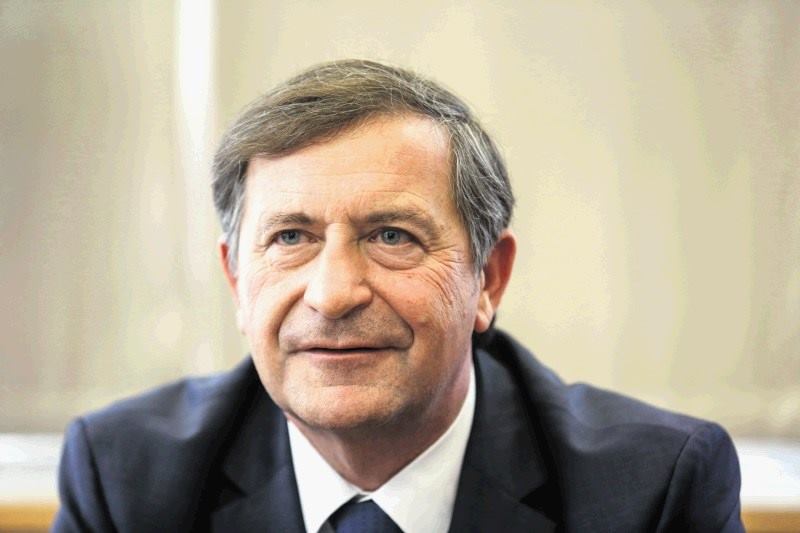
Karl Erjavec. DeSUS Facebook
Karl Erjavec, nominee for defence minister (DeSUS)
Variously labelled an eternal minister and the Teflon Karl, Erjavec has served as minister on all governments since 2004, most recently three consecutive terms as foreign minister.
He was already in charge of the defence department in the 2004-2008 Janez Janša government, after which he also served as environment minister in the Borut Pahor government between 2008 and January 2010, when he resigned due to a damning Court of Audit report on waste management.
Before assuming the leadership of the Pensioners' Party (DeSUS) in 2005 he switched membership of several parties, right- and left-wing. He has been the face of the single-issue party ever since and the only time his leadership was called into question was after the latest election in which the party fared much worse than expected, winning only 5 seats in the 90-strong parliament.
Drawing on a reliable electoral base, the 58-year-old has been a major political player for years and his party has as a rule taken the role of the kingmaker, which has always guaranteed a good negotiating position for Erjavec, known for extorting coalition partners with demands for higher pensions.
His first stint as defence minister will be remembered for the controversial 2006 contract with Finnish Patria to supply EUR 278m worth of armoured personnel vehicles. Having signed the deal, Erjavec was charged with malfeasance in office, but was acquitted, while the then PM Janez Janša would later be sentenced to prison, only to have his conviction quashed by the Constitutional Court, while the case became statute-barred before it came to retrial.
In fact, Erjavec has been the only defence minister so far to serve out a full four-year term.
When Erjavec served as foreign minister in Janša's second government (February 2012-March 2013), Slovenia signed an agreement with Croatia on the issue of LB foreign currency deposits, which paved the way for Slovenia's ratification of Croatia's EU entry, but the two sides soon started interpreting the deal differently and the issue has not been solved to date.
After the Janša government was ousted, Erjavec resumed his career as foreign minister in the governments of Alenka Bratušek and Miro Cerar. His latest term was marred by the phone hacking scandal involving Slovenia's agent and the country's member of the tribunal arbitrating on the border dispute with Croatia, as a result of which Croatia withdrew from the arbitration process.
Erjavec has also been criticised for what many perceived as his pro-Russian politics, a charge that he dismissed by arguing that Russia was an important trading partner and that disagreements should be resolved through dialogue.
Erjavec was born in Aiseau, in Belgium, where his father worked as a miner. He moved to Slovenia at the age of 12. He graduated from the Ljubljana Faculty of Law. He is married and has two grown-up daughters.
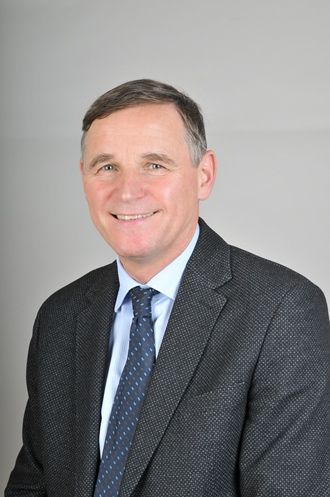
Andrej Bertoncelj. University of Primorska
Andrej Bertoncelj, nominee for finance minister (LMŠ)
Andrej Bertoncelj, 61, has a PhD degree in finance and has been until recently a full professor of management at the University of Primorska. Succeeding Mateja Vraničar Erman at the post of finance minister, his main task will be to keep public spending in check.
Born in Celje, Bertoncelj is currently a supervisor and a stand-in member of the management board of Slovenian Sovereign Holding (SSH), responsible for corporate governance, restructuring and financial management.
Before becoming a professor at the University of Primorska in 2009, he worked in the pharmaceutical industry and wholesale of pharmaceuticals for 20 years. He was director of the US branch of pharma company Lek, an assistant director general for finance in Lek and an advisor to the chairman of drug company Kemofarmacija for corporate management.
Bertoncelj is a financial expert with international experience spanning 25 years, including in financial management, corporate management and financial restructuring of assets in the international environment.
He has written a number of books on takeovers and mergers, as well as a number of scientific articles in international journals.
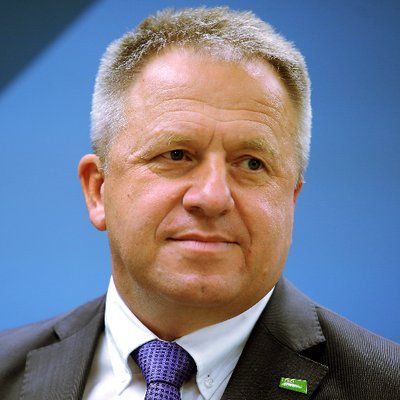
Zdravko Počivalšek. His Twitter account
Zdravko Počivalšek, nominee for economy minister (SMC)
Zdravko Počivalšek, 60, has served as economy minister in the Miro Cerar government since December 2014, after having spent three decades in senior management, half of which as the boss of spa operator Terme Olimia.
Tourism was also one of his priorities as minister, along with the promotion of foreign direct investment and of wood-processing. Počivalšek enhanced the system for the promotion of the country's tourism industry; budget funding for the purpose was almost tripled to EUR 12m, while a special promotion levy enacted during his term is to bring the sum close to the target EUR 20m.
Počivalšek also had the Slovenian Tourism Board reinstated as an independent organisation, and took first steps in a bid to consolidate state ownership of big tourism companies before restructuring them and sell them to strategic owners for a good enough price.
He has been advocating prudent privatisation, opposing the first attempt at selling the NLB bank in 2017, and defending the interests of Slovenian retailer Mercator in the financial collapse of its Croatian parent Agrokor, a position that earned him the criticism of liberal economists.
The left wing criticised him for his view that the focus in the country should shift from how to distribute the fruits of the robust economic growth in recent years to how to help businesses generate more.
Počivalšek and the outgoing government are credited with a breakthrough in FDI, including the arrival of major greenfield investments such as those by Japan's Yaskawa and Sumitomo and by the Austrian-Canadian automotive giant Magna Steyr, all of which won state subsidies.
The project of Magna's paint shop in particular earned him criticism as well, also because of the site's location on prime farming land near Maribor and because Austrian-Canadian corporation was granted special treatment in administrative procedures.
Počivalšek's management experience dates back to the mid-1980s when he was a member of a crisis management team tasked with turning around the agricultural cooperative in Šmarje pri Jelšah, of which he later became general manager.
An agronomist by training, Počivalšek later acted as general manager at the dairy Mlekarne Celeia starting in 1995, before joining Terme Olimia in 1999. His management is credited with turning around the spa in Podčetrtek, a rural town in south-eastern Slovenia.
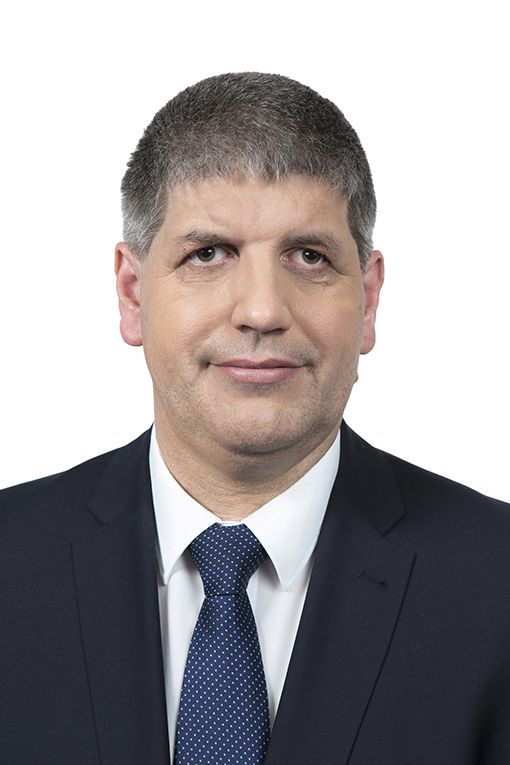
Boštjan Poklukar. strankalms.si
Boštjan Poklukar - nominee for interior affairs minister (LMŠ)
Boštjan Poklukar, 47, holds a master's degree in public administration. He made a career in the Slovenian Armed Forces, was actively involved in the resolving of the 2015 refugee crisis and has been the head of the Kranj Regional Information Centre of the Civil Protection and Disaster Relief Administration since 2017.
Poklukar joined the Defence Ministry in 1991, rose to the rank of master sergeant and received several army honours. He started working at the Disaster Relief Administration in 2015 when he performed the PR duties related to migration.
He has lectured on protocol and published in 2011 a book entitled I Do Protocol. He said on the occasion that officials needed to respect the rules of protocol, as not doing so meant disrespecting the country and its dignity.
Poklukar ran for the Marjan Šarec List (LMŠ) in the June general election, but failed to make it to parliament. It is speculated that the army's former chief of the general staff, Andrej Osterman, had recommended him to Šarec for defence minister, the post that will be occupied again by DeSUS leader Karl Erjavec after his stint as foreign minister.
While migration remains a key challenge for the Interior Ministry, Poklukar, a strong voice for a stable financing of the army, will also have to deal with the continuing issues related to equipment, staffing and wages in the police force, which organised several strikes in recent years.
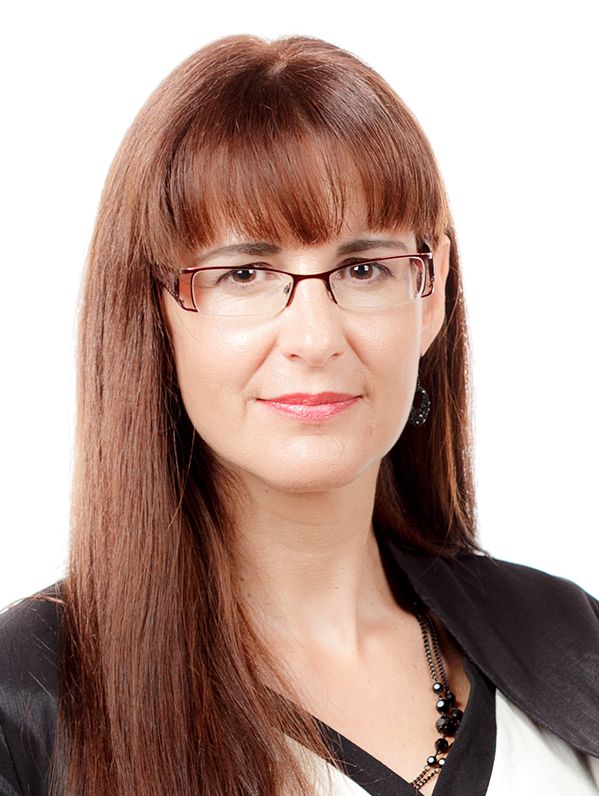
Andreja Katič. www.sd-velenje.si
Andreja Katič, nominee for justice minister (SD)
Katič, 48, entered politics in 2014 when she was elected MP for the Social Democrats (SD). She went on to become one of the deputy speakers before being appointed defence minister in the Miro Cerar government in May 2015 to replace Janko Veber, who was sacked over an intelligence scandal.
Before being elected MP she had headed the Velenje city municipality administration from 1998. In local government, she was active in various areas, including health, utility services and energy.
Her being picked for the justice department raised many eyebrows with allegations that the energy lobby centred around the Velenje coal mine and the Šoštanj coal-fired power plant TEŠ would get an ally at the ministry when the case of alleged corruption in the project of unit 6 at TEŠ would come to court.
She denied the allegations in the strongest terms: "It has never crossed my mind to try to interfere in the judiciary's work in any way."
As defence minister she failed to get the coalition on board to have legislation overhauling the defence system passed in parliament, but the government did reverse the negative trend in defence spending.
Badly underfunded, the Armed Forces faced serious staff shortages and the state of the army's readiness for war-time action remained unsatisfactory under Katič's guide, although its preparedness for peace-time operations improved.
In a major fiasco, an elite brigade failed a NATO combat readiness test, which prompted the replacement of Major General Andrej Osterman as the chief of the general staff with Major General Alan Geder.
Katič graduated from the Maribor Faculty of Law in 1996. She has a partner and a 16-year-old daughter.
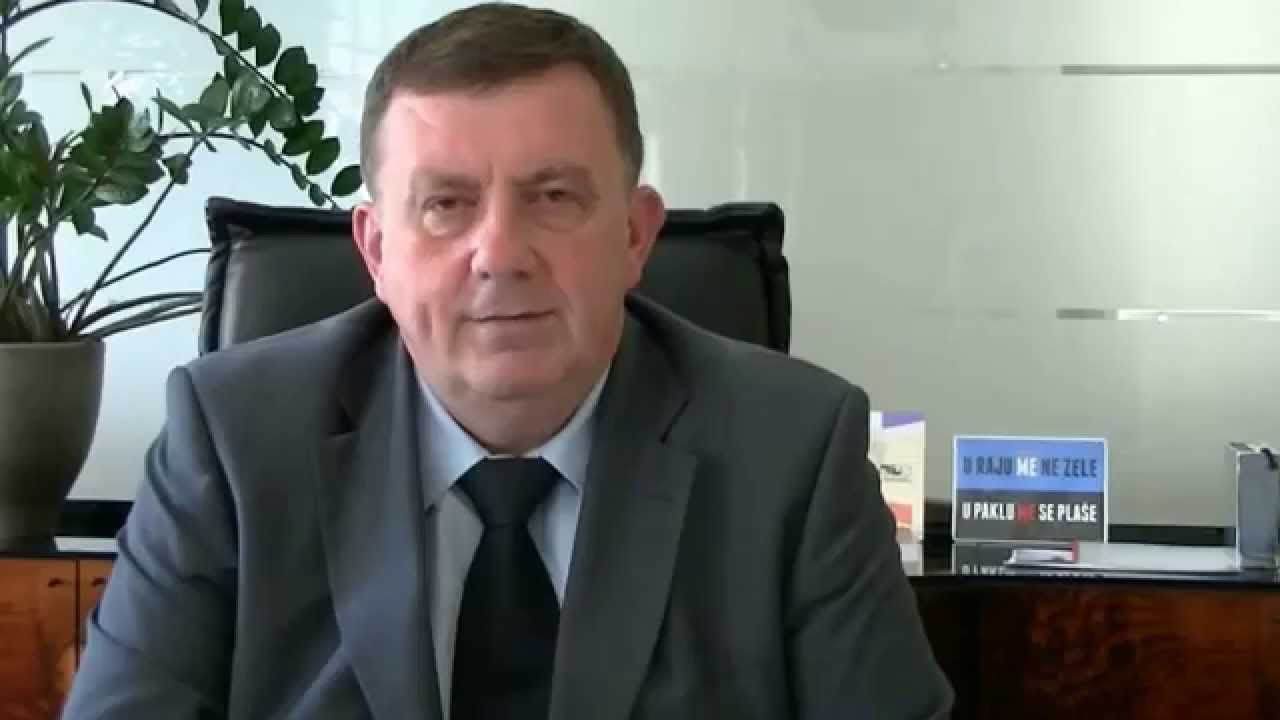
Samo Fakin. YouTube
Samo Fakin, nominee for health minister (LMŠ)
Samo Fakin, 62, has a wealth of experience in Slovenia's healthcare system, having served at a number of crucial posts, including for nine years as the head of the public health insurer ZZZS as well as hospital director.
Fakin started his career as a general practitioner in his home town of Trbovlje in 1984 and went on to lead the local healthcare centre from 1992 to 1994. He then worked for two years as healthcare economy adviser at the ZZZS before becoming the director of the Celje general hospital.
He took the hospital from the red but was relieved of his duties in 2002 after a scandal related to erythropoietin prescriptions. According to some accounts, a conflict related to doctors' working hours was the real reason behind the clash, which went all the way to court to see Fakin as well as the prosecution withdrawing in the end.
His next engagement was as a member of the expert council with the Health Ministry and in 2006 he also served as secretary in the government Office for Development in charge of healthcare reform.
A year later, Fakin began running the pubic health insurer, with a major part of his term being marked by the economic crisis, which also put a lot of strain on the health system. The repeating criticism levied at the time against the ZZZS was that it lowered costs by engaging in non-selective and general cuts of prices of services.
Fakin then came at odds with the 2014-2018 government, failing to get sufficient parliamentary support for another term due to opposition by the ruling Modern Centre Party (SMC), which cited conceptual differences as the reason. Relegated to an acting ZZZS director, Fakin resigned in 2016.
After a short stint as the CEO of the Thermana Laško spa, he took over as the head of the Slovenian Diabetes Patients Association, making headlines with the statement that parties' platforms should include the declaration that waiting lines in healthcare are not an option.
"We all know how to solve this - with additional money and better organisation. We have destroyed both, in particular in the last four years. You need to know that the health system is not really being managed," he said a few months ago.
Ksenija Klampfer. SMC Twitter
Ksenija Klampfer, nominee for labour, family, social affairs and equal opportunities minister (SMC)
Ksenija Klampfer, 42, holds a master's degree in law and is specialised in European administrative law. She led the internal administrative affairs department at the Slovenske Konjice administrative unit for eight years before becoming the head of the Maribor administrative unit in 2015.
Klampfer, a married mother of one, has already had some government experience, having served as state secretary at the Public Administration Ministry from October 2017 until April 2018 when she returned to the helm of the Maribor administrative unit.
She also ran the unit when it decided on the permits for the Magna Steyr paint shop, a key project of the 2014-2018 government, ran by her party boss Miro Cerar. She was also in the spotlight in 2017 when the unit backed the police proposal to ban a concert by Croatian nationalist singer Marko Perković - Thompson due to security risks.
The licensed jurist is also serving as municipal councillor in Slovenske Konjice, is a lecturer at the Public Administration Ministry's academy and a member of the Research Network on EU Administrative Law.
Klampfer said she was somewhat surprised by Cerar's offer to serve as minister but also saw it as a recognition of her past work. She accepted to continue the work of the last government and use her knowledge and ear for the most sensitive aspects of life to improve the workings of the extensive and complex systems covered by the ministry.
Tugomir Kodelja, nominee for public administration minister (LMŠ) (no photograph available)
Tugomir Kodelja, 58, is the least known of all nominees. He has lived abroad for years and has never worked in the public administration, but the LMŠ says that he knows the issues he will deal with as minister well.
Kodelja, an economist by profession, started his career at food company Droga Kolinska and later held several managerial positions in the car industry.
Between 2009 and 2013 he served as executive director of Avtoplus, a Koper-based car retailer, and later worked at Citroen Slovenija for a decade. There he served as the head of sales to corporate clients, among other things, according to media reports.
In May 2014, he was honoured by the then French ambassador to Slovenia, Pierre-Francois Mourier with the Order of the Knight, a French order of merit, for his service to the French company.
That year, he moved to Germany's Munich to work as a consultant to companies on "the planning and implementation of investments", according to the LMŠ.
Two years later, he was invited by A-Cosmos, a car retailer, to set up a new branch in Nova Gorica. He completed the task in two years' time and returned to Munich in 2017 to continue working as a consultant, the party said, adding that the nominee was happy to return to Slovenia to "help create an efficient public administration".
Although Šarec said that Kodelja was well aware of the problems in Slovenia's public administration and was an experienced negotiator, he also indicated that somebody else could be tasked with heading the pay negotiations with trade unions.
Kodelja is not a member of the LMŠ and has not been a member of a party in the past. He is married and has two grown children.
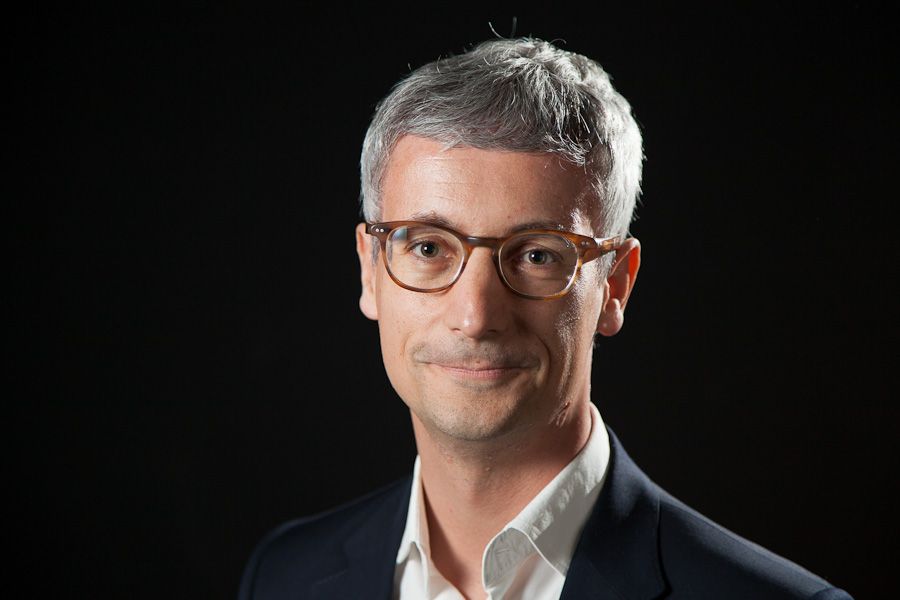
Jernej Pikalo. www.fdv.uni-lj.si
Jernej Pikalo, nominee for education minister (SD)
Jernej Pikalo, 43, holds a PhD in political sciences and works as a political sciences professor at the Ljubljana Faculty of Social Sciences. He has written several books, including Neoliberal Globalisation and the State (2003), New Citizenships in the Era of Globalisation (2010) and Citizenship and Globalisation (2010).
Pikalo served as education minister in the 2013-2014 Alenka Bratušek government. A strong advocate of public education, Pikalo annulled during his first stint contentious state concessions granted by the Janez Janša government to four private higher education establishments. He also oversaw the introduction of a non-compulsory nationwide exam in the sixth grade of primary school as well the teaching of the first foreign language already in the second grade. Moreover, a new bill on higher education was drafted during his short term, but was shelved by his successors.
Pikalo also served as the head of the RTV Slovenija programming council between 2010 and 2013 and as a member of a committee in charge of picking candidates for a key state-asset management body in 2011 and 2012.
Pikalo heads the SocDems' council for education, and helped draft the party's programme, which envisages an increase in the share of GDP spent on education to pre-crisis levels, a reduction of teachers' administrative burdens, free kindergartens, the introduction of civic education in secondary schools, and more autonomy for universities.
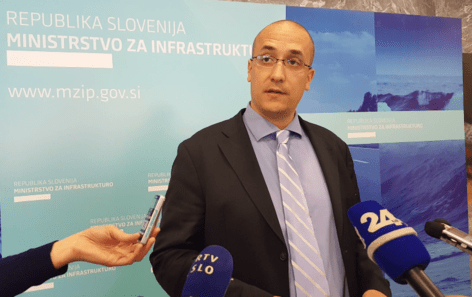
Jure Leben. www.mzi.gov.si
Jure Leben, nominee for environment and spatial planning minister (SMC)
Jure Leben, an outgoing state secretary at the Infrastructure Ministry, is returning to the Ministry of the Environment and Spatial Planning, where be briefly served as state secretary in 2014.
Born in Ljubljana in 1981, Leben was active in basketball, which took him to a US college, where he graduated in environmental protection. Returning to Europe, he worked in the Transport Research Laboratory in the UK, in the fields of assessment of transport systems, comprehensive environmental impact assessment, new technologies and climate change.
He also studied environmental studies at Oxford Brookes University, and this year he earned a master's degree in philosophy at the University of Hertfordshire.
After returning to Slovenia in 2008, he headed a centre for renewable energy sources and environmental protection in Pivka, and worked in the government office for climate change. In 2012, he took a job at the then Ministry of Agriculture and the Environment, including as the head of a task force for green public procurement and construction of roads.
In the summer of 2016, the government of Miro Cerar appointed him a state secretary at the Infrastructure Ministry. He managed the project to construct a second railway track between the port of Koper and the inland hub of Divača, one of the key projects of the previous government.
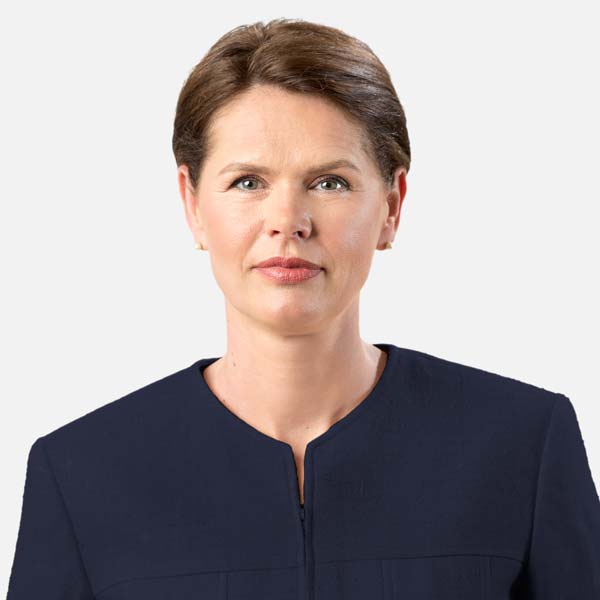
Alenka Bratušek. www.alenkabratusek.si
Alenka Bratušek - nominee for infrastructure minister (SAB)
Bratušek, who served as Slovenia's only female prime minister to date from March 2013 to September 2014, is a 48-year-old mother of two. She graduated from the Ljubljana Faculty of Natural Sciences and Technology in 1994 before obtaining a master's degree in management at the Ljubljana Faculty of Social Sciences in 2006.
Bratušek worked at the Economy Ministry from 1995 to 1999 and then for 12 years at the Finance Ministry, where she was in charge of budgeting. After being elected a Kranj city councillor twice, Bratušek unsuccessfully ran for the Zares party in the 2008 general election.
She then joined Ljubljana Mayor Zoran Janković's Positive Slovenia (PS) in 2011 and was elected to parliament. She became prime minister after a corruption watchdog report tainted the then PM Janez Janša as well his rival Janković to a point where parliamentary parties turned their back on both of them.
She ran the government at the height of the crisis, which Slovenia bridged without the notorious troika, albeit with a massive internal bank bailout whose size and accompanying commitments remain contentious.
A rift within the PS cost her the prime ministerial post as she resigned in May 2014. She went on to form her own party, which is presently known as the Alenka Bratušek Party (SAB). The party made the 4% parliamentary threshold in the 2014 and 2018 general elections, but Bratušek failed to secure an MP post for herself in 2018.
In a major fiasco of her career Bratušek had herself nominated for the post of Slovenia's EU commissioner by her outgoing government.
She withdrew her bid after she was given the thumbs down from two European Parliament committees, but moral qualms surrounding her self-nomination made her an unwanted partner in the Cerar government.
Bratušek will head the ministry in charge of the biggest ongoing project in the country, the second rail track to the Koper port, whose organisation has been the cause of major clashes.
During the election campaign she took the neutral path of calling for a prompt launch of construction after a financial review of the project's plans. Another priority, which she was already highlighting as the prime minister, will be the Third Development Axis, a north-south expressway that has been over a decade in the making.

Aleksandra Pivec. www.uszs.gov.si
Aleksandra Pivec, nominee for agriculture, forestry and food minister (DeSUS)
Aleksandra Pivec, 46, is a state secretary at the Office for Slovenians Abroad, which she joined in September 2016. She is in charge of development and assistance in coordinating development interests among Slovenians living abroad.
Pivec holds a PhD in chemical engineering from the Faculty for Chemistry and Chemical Technology in Ljubljana, where she continued her studies as a young researcher after graduation.
She stood for parliament in this year's election for the Pensioners' Party (DeSUS), but was not elected.
She is in favour of the market economy, yet believes the government should intervene to create conditions for an efficient economy and for social security for all, she wrote in her bid for a seat in parliament.
Visiting the agricultural Agra fair recently, she said she would focus on changing the demographic structure of farmers by encouraging young people to continue their family tradition.
Besides her job at the government office, she is also a member of the research team at the Bistra Ptuj Science and Research Centre, where she has worked for 17 years.
During this time, she was also the centre's director for six years. The rest of her career at the centre focused on project management and coordination of national and international development and research projects.
She was also involved in local and regional development projects in the region of Spodnje Podravje in the north-east and in connecting the academia with businesses.
The ministerial candidate also works as an advisor on the transfer of technologies from research institutions to the economy.
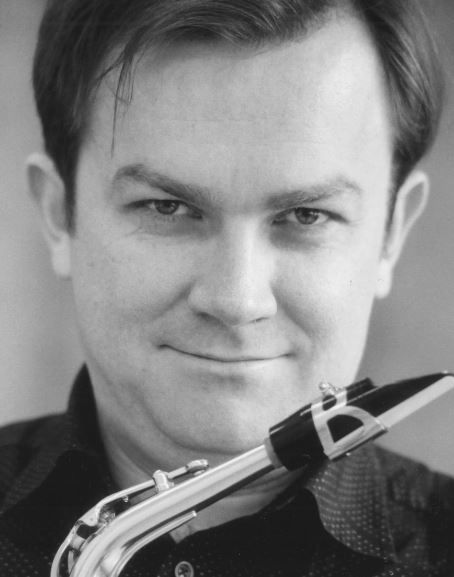
Dejan Prešiček. www.dejanpresicek.com
Dejan Prešiček, nominee for culture minister (SD)
Dejan Prešiček, 47, is a saxophonist who studied at the Music Academy in Frankfurt as soloist and chamber musician, and who has performed with various chamber and symphony orchestras in Slovenia and abroad. He is director of the Ljubljana Conservatory for Music and Ballet, where he also teaches saxophone and chamber music.
After graduating in Frankfurt, he continued his studies at Jean-Marie Londeix's master class in Bordeaux, where he won the gold medal and the prize of the city of Bordeaux for saxophone and for chamber music, according to his website.
Prešiček has performed at numerous festivals and in concert halls in Europe and Canada, the US and Brazil. As a soloist, he played with the Slovenian Philharmonic Orchestra, Thailand Philharmonic Orchestra, Ensemble Modern of Frankfurt, Ensemble Aventure of Freiburg, and numerous opera houses.
He has worked with a number of Slovenian and international composers, and recorded music for different radio and TV stations. He is also a co-founder of the association of Slovenian saxophonists.
As minister Prešiček will seek to secure as much funds as possible for culture. He is looking forward to the introduction of a special levy for culture, which is envisaged in the coalition agreement.

Marko Bandelli. www.alenkabratusek.si
Marko Bandelli, nominee for EU cohesion policy minister, without portfolio (SAB)
Marko Bandelli, 50, is to head the Government Office for Development and European Cohesion Policy. The former mayor of Komen is an MP of the Alenka Bratušek Party (SAB) and one of the party's three vice leaders. Before joining the party, he was a member of Positive Slovenia, the party of the Ljubljana mayor, from which Bratušek defected to form her own party.
Bandelli is an entrepreneur and a member of the Supervisors' Association and the Managers' Association. Years ago, he chaired the supervisory board of the public broadcaster RTV Slovenija.
He was born in Italy's Trieste to Slovenian parents. He founded his first company when he was 22. In the next decade, he founded several other companies which he all led until he was elected mayor in 2014.
In 2011, he founded a company producing concrete, which evolved into the Bandelli group that posted EUR 4.5m in revenue in 2017. The group employs 16 people.
According to the party's website, he also used his entrepreneurial skills as mayor, completely overhauling the system of running the Komen municipality to focus on its economic, agricultural and tourist development.
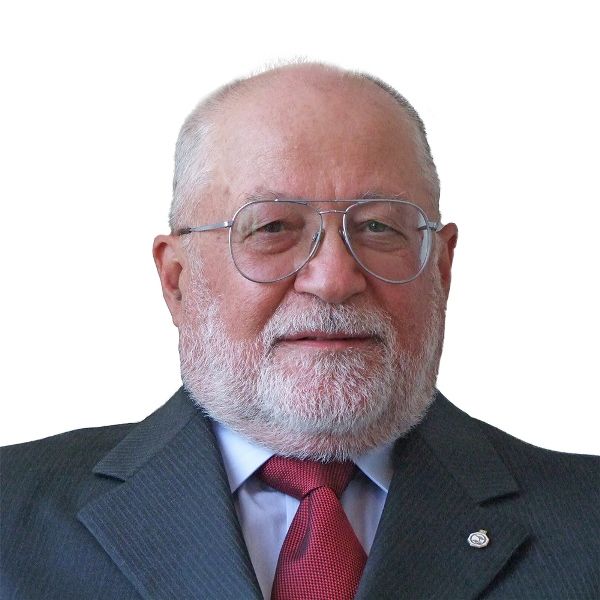
Peter Jožef Česnik. www.dz-rs.si
Peter Jožef Česnik, nominee for minister for Slovenians abroad, without portfolio (SAB)
Peter Jožef Česnik, who was at the age of 73 elected the oldest, is to become a minister without portfolio heading the Government Office for Slovenians Abroad. Considering that he lived as an emigrant in Australia for 36 years and is still connected with Slovenians around the world, he is expected to be familiar with the portfolio.
Česnik was born in Ljubljana in 1945, and emigrated to Australia in 1967 for political reasons, as he once noted himself.
After coming to Melbourne, he first worked for an insurance company, and then, after graduating at an air control academy, got a job as an air traffic controller in 1971 in the Australian flag carrier Qantas Airways. He performed the job for 32 years in Melbourne and Sydney. He was also a trade union representative in the company and worked as a translator in the main hospital in Melbourne and a court interpreter for Slovenian and Serbo-Croatian.
Česnik was also active among the Slovenian immigrants in Australia, serving as the head of the Slovenian expatriate association in Sydney. After retiring and returning to Slovenia in 2003, he has stayed in touch with Slovenian organisations around the world.
He has been active in politics in Slovenia for several years. He was a founding member and a vice-president of the defunct party Zares, formed in 2007, running unsuccessfully on the party's list for the 2009 European elections.

